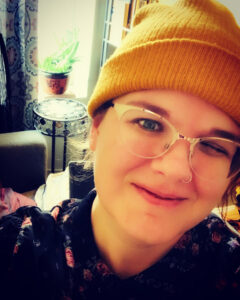I think it’s interesting how the author started midway and from there started giving clues bit by bit as lines progressed about what was going to be the story about. The form the author describes the scenery and the flashbacks made me think of a theatrical play where I was the judge and the spectator at the same time. The involvement of the bridge and its significance to the author due to the bridge reminding him of his dead mother was a good analogy to represent how he felt about what happened to her. At the start, it seems that the bridge was a place where he first did not want to look at but then realized that the bridge was the only way to confront his past and accept that the reality he lives in. I also think it’s interesting how the author writes the main character as this person who lives in the present and the past in some way. Throughout the chapter, it seems that some actions trigger the memories of his mother and his past, like going to the bridge, or when he got lost thinking about those who had been sold to the south, or even through his calmness when he accidentally crashed and ended up in the river with his brother, and even after he sensed that his brother is dead, he comes back to remembering his mother, constantly living in the past.
About
Professor: Jessica Penner
Email: creative.writing.citytech2@gmail.com
Office Hours: Tuesdays and Thursdays, 11:30 AM – 12:30 PM. I’ll be available through Zoom and will send an invitation via email that you should keep all semester. Try to join my meeting at the start of the hour, not at the end—since I may be talking to other students or have another appointment after the hour is up. If those times don’t work with your schedule, we can schedule a different time. This means you’ll have to schedule an appointment in advance. I suggest you have multiple times in mind, since your schedule may not mesh with mine!
Sharing
Logged-in faculty members can clone this course. Learn More!
Search This Course
Find Library Materials
Library Information
Ursula C. Schwerin Library
New York City College of Technology, C.U.N.Y
300 Jay Street, Library Building - 4th Floor





I agree with your analysis of the narrator living in the past. With his family dying in front of this he doesn’t even have the compassion to cry let alone care. As you stated he didn’t want to acknowledge the bridge at first but he’s pulled into his past and as the waters flooded into his lung the memories flooded into his mind. This parallelism stood out to me, which highlights your point of Hiram needing to move on but being unable to.
I agree with you ,sometimes while reading the main character was living in the present but jumped to be stuck on past events in his life. The bridge holds significant values of both happy and sad memories regarding his mother. It was ironic that he had to confront his pain at the place he least wanted to be.